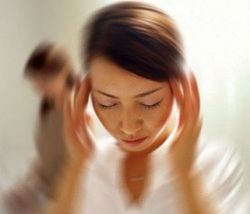 Vertigo, dizziness, and disequilibrium are actually three different conditions although we usually lump them together as one and just call all of them dizziness. What is the difference? What are some facts about vertigo? How can you treat vertigo naturally? Read on to learn the answers.
Vertigo, dizziness, and disequilibrium are actually three different conditions although we usually lump them together as one and just call all of them dizziness. What is the difference? What are some facts about vertigo? How can you treat vertigo naturally? Read on to learn the answers.
Table of Contents
Vertigo Defined
To understand the differences between the three conditions, consider the following:
- Disequilibrium – Refers to loss of balance
- Dizziness – A feeling of lightheadedness
- Vertigo – The feeling that the room is spinning
Now that you have a definition to go by, we can discuss vertigo in a little more detail.
To learn more about the connection between head and neck injuries and migraines download our complimentary e-book by clicking the image below.

Facts About Vertigo
- Vertigo can be a symptom of a migraine—especially a vestibular migraine.
- Vertigo is a common side effect of many medications.
- The feeling of lightheadedness a person gets when they are afraid of heights is not the same as vertigo even though many incorrectly apply the term. The proper term for a fear of heights is acrophobia.
- BPPV (benign paroxysmal positional vertigo) is the most common form of vertigo. In this condition, it is the position or movement of a person’s head that begins an episode. It can also be referred to simply as positional vertigo.
Natural Vertigo Treatment in Maine
Many vertigo patients have a common theme in their patient history—an accident or injury to the neck or head. Many begin to suffer from vertigo following a car accident, a fall, or a sports injury—just to name a few. Oftentimes, this means that the real cause of the vertigo is a misalignment of the neck suffered during the accident or injury.
An upper cervical chiropractor can examine the neck using precise measurement techniques and x-ray imaging to determine if such a misalignment exists. Gentle corrections can help restore proper alignment and nervous system function. For many, this leads to a reduction in vertigo occurrences or even resolution of the problem.
To schedule a complimentary consultation with Dr. Scott Glocke call our Yarmouth office at 207-846-5100 You can also click the button below.

